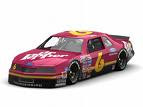The Mentos effect
To explain the foamy geyser that results from Mentos and Coke being combined you need to think of Physics.
Sodas like Coke contain compressed carbon dioxide. It's the gradual expansion and release of this pressurized gas in the form of bubbles that makes the fizz in carbonated drinks. It's the surface tension of the liquid - the strong attraction that bonds its water molecules together, that prevents the gas from escaping all at once.
When Mentos are added, that surface tension is disrupted by the additives in the candy - gelatin and gum arabic, and the outside surfaces of the Mentos provide encourages the rapid formation of bubbles. When you drop Mentos into a carbonated beverage, it causes the sudden release of pressurized gas which blows up out of the narrow neck of the Coke bottle giving a fantastic fountain effect. So drop some Mentos candies into a bottle of Coke, shake it up if you dare and MOVE away from it.
So drop some Mentos candies into a bottle of Coke, shake it up if you dare and MOVE away from it.
Oh, and do this outside. And guess what Ms S substituted for the Coke?
Look at the picture to see if you guessed correctly.
Monday, August 17, 2009
Boom baby boom!
Posted by
Leslie
at
10:08 AM
0
comments
![]()
Labels: mentos and coke
Tuesday, August 11, 2009
A terrarium - Mary, Mary quite contrary
 How does your terrarium grow?
How does your terrarium grow?
First get a glass jar, then one quarter fill it with soil and add some plants. You can use moss or plant a small potato, or some apple seeds or an attactive small weed from your garden.
Water it carefully without making it too moist and put on the lid. Keep your terrarium in a well-lit, warm place and watch how the plant grows in its own little environment.
We did two terrariums in our class. One had ventilation holes in the lid and one terrarium remained sealed.
We predicted the outcomes in the two terrariums, would one survive or would both? We wrote a word bank and researched the respiration rate of plants. We compared desert plants and their needs to tropical rainforest plants.
Posted by
Leslie
at
2:01 PM
1 comments
![]()
Labels: terrarium
Fizz Whizz
 Chemical reactions - Alkaline Versus Acid
Chemical reactions - Alkaline Versus Acid
We are going to use bicarbonate of soda to see what liquids, both alkaline and acid, react to it.
The acidic liquids will be vinegar, lemon juice and Coke.
The alkaline liquids will be milk, raspberry cordial and coffee.
We will predict what will occur when bicarbonate of soda is introduced into firstly the alkaline liquids, then into the acidic liquids.
Remember, for every action, there is a reaction.
How does this experiment work: Bicarbonate of Soda reacts with acids, releasing carbon dioxide which bubbles up through the solution. The more acidic a liquid is (like vinegar), the more fizz will be produced.
Posted by
Leslie
at
12:15 PM
0
comments
![]()









